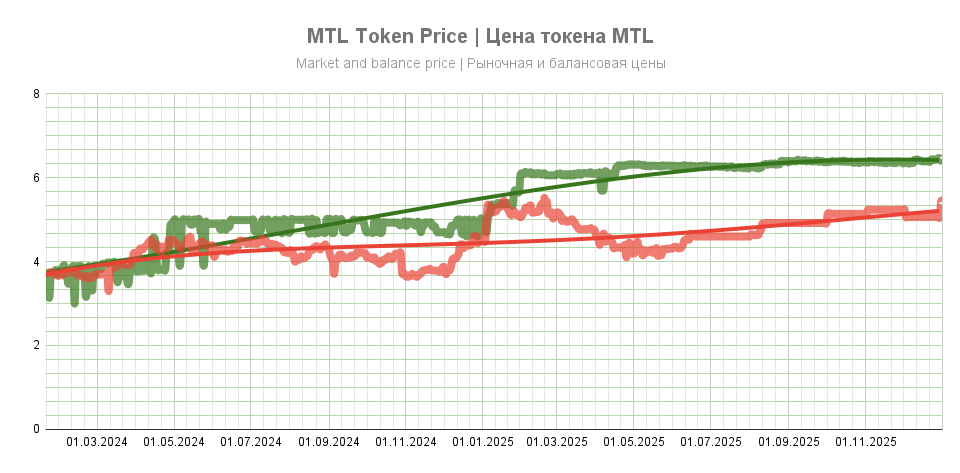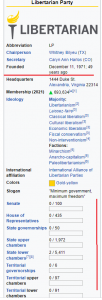
Political Project FSPE has the most common critical counterargument, which needs to be addressed in detail.
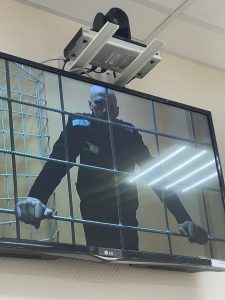 Since we offer people to move as quickly as possible for political changes to a foreign country where obtaining citizenship (in Montenegro it is preceded by 10 years of residence permit and permanent residence permit) is no trivial task, critics often remark that a stateless person in his country of residence cannot change anything without having the right to vote and to be elected.
Since we offer people to move as quickly as possible for political changes to a foreign country where obtaining citizenship (in Montenegro it is preceded by 10 years of residence permit and permanent residence permit) is no trivial task, critics often remark that a stateless person in his country of residence cannot change anything without having the right to vote and to be elected.
Let us begin with the simple fact that even as a citizen in one’s country of origin it is virtually impossible to change anything, or these changes will turn out to be a sham or an unacceptably expensive undertaking.
In many authoritarian countries, where most of these migrants are forced to leave from, with widespread practices of vote rigging and preventing dissenting candidates and their parties from voting, active and passive voting rights are already absent, and attempts to exercise them are liable to arrest or even assassination. Therefore, it is difficult to say that migrants from such countries can lose something they did not have, often even technically.
But if such migrants leave functional liberal democracy — the chances of the libertarian candidates and parties to win there, as the vast, already accumulated practical base of such attempts shows, remain negligible in any case. Especially if we are talking not only about representation in power, but consistent successful reforms that will not be interrupted at the very outset or lost in the maze of coalition trade-offs.
Successful political engagement is not a cheap enterprise in which the financial costs can be largely replaced by the efforts of volunteers, but in the end, their free labor can also be evaluated in financial numbers (they simply shift these costs to their own income and savings, but in fact they still bear them), which turn out to be very costly:
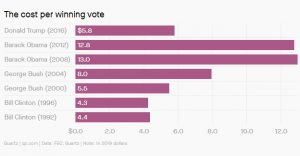
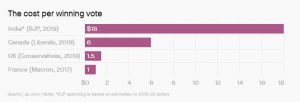
Eventually, any electoral victory is measured by the exact financial expenses of the electoral headquarters — and while there is no clear pattern in a democracy that the candidate who has spent the most money on elections will definitely win, such victories, in any case, cost a lot of money and without them there is no chance of being heard. Behind any fabulous Goloborodko in the real world there is his own Kolomoisky. And the more citizens live in a particular country, the higher the financial barrier to success in the end. Despite all the caveats, but winning your electoral ideals is first and foremost the cost of convincing each individual voter to vote for them, multiplied by their entire collective number required to get a majority in an election.
 The simple basic mathematics of the electoral process ensures that the election cannot be accomplished by our own financial expenditures alone; broad coalitions must be formed to finance the electoral process. But why would the holders of capital wish to finance it? Certainly for the realization of their short-term commercial interests through state power, which provides them with an advantage over their competitors. The costs of election expenses need to be compensated, and this always means subsidies, state subsidies, protectionism, anti-competitive regulations, and other pleasures of corrupt state policy, which, once cleared, does not mean that there will be anything left at all.
The simple basic mathematics of the electoral process ensures that the election cannot be accomplished by our own financial expenditures alone; broad coalitions must be formed to finance the electoral process. But why would the holders of capital wish to finance it? Certainly for the realization of their short-term commercial interests through state power, which provides them with an advantage over their competitors. The costs of election expenses need to be compensated, and this always means subsidies, state subsidies, protectionism, anti-competitive regulations, and other pleasures of corrupt state policy, which, once cleared, does not mean that there will be anything left at all.
Another, even more frustrating side of practical politics is the simple empirical fact that people, on average, are far from being intellectuals, and they will be driven by the most short-term and populist motives. These can be mitigated through the power of personal example, demonstrable positive practices, and communication. However, when it comes to large social systems, the chances of having meaningful dialogue and consciously convincing voters in a flood of information noise and the simplest advertising signals of voting for the candidate with the prettiest face on TV are next to zero. You can personally get through to the mind of a few acquaintances or maybe even convince dozens of people, but if there are millions of them your efforts will not be noticed by the mass marketing technologies, where the factor of financial incentives of commercially interested groups and the oligarchy they produce is more obvious.
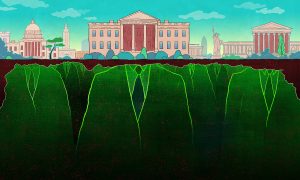 Another problem is the internal logic of the development of any bureaucratic system, which is doomed to expand to meet the needs of a sprawling bureaucracy. This system has its own growth incentives, like a cancerous tumor, and in societies that are large enough, cutting out this malignant growth becomes virtually impossible, even if the leader of the state himself understands this threat, as Ronald Reagan understood, for example, in the United States. The internal mechanisms of the «deep state» are too strong for individual politicians, even with the most honorable intentions, to radically change the system. However, if the entire social system is very small, the inertial force of such a bureaucracy is not sufficient to become a » thing in itself,» its members can be persuaded directly, as members of a small neighborhood community. Even if this is impossible, the public resources needed to overcome the resistance of such a system need not be innumerable. Simply by the fact that it is represented by a relatively small group of individuals with limited resources, not enough to become a full-fledged multi-headed hydra, one of those that have clung to and entangled larger countries until they fall apart, as all the empires of the past have fallen apart.
Another problem is the internal logic of the development of any bureaucratic system, which is doomed to expand to meet the needs of a sprawling bureaucracy. This system has its own growth incentives, like a cancerous tumor, and in societies that are large enough, cutting out this malignant growth becomes virtually impossible, even if the leader of the state himself understands this threat, as Ronald Reagan understood, for example, in the United States. The internal mechanisms of the «deep state» are too strong for individual politicians, even with the most honorable intentions, to radically change the system. However, if the entire social system is very small, the inertial force of such a bureaucracy is not sufficient to become a » thing in itself,» its members can be persuaded directly, as members of a small neighborhood community. Even if this is impossible, the public resources needed to overcome the resistance of such a system need not be innumerable. Simply by the fact that it is represented by a relatively small group of individuals with limited resources, not enough to become a full-fledged multi-headed hydra, one of those that have clung to and entangled larger countries until they fall apart, as all the empires of the past have fallen apart.
However, what can be changed in a foreign country, even if it is a more favorable one, without citizenship?
It is important to understand that political transformation is much more complicated than simply going to an election or a politician winning an election. 99% of the work that precedes and follows this has nothing to do with actually using voting rights (and thus citizenship status) and includes, but is not limited to:
— public opinion work, campaigning, and education aimed at changing public opinion and introducing certain skills and competencies into it, such as the popularization of cryptocurrencies, entrepreneurship, or civic weapons;
— creating and visually demonstrating positive emancipatory practices in the country, for example, related to blockchain technologies, non-state arbitration, mass corporatization, private cities, as well as private charity, cooperation, and other non-authoritarian practices that demonstrate how to solve problems without state coercion, involving as many local residents as possible into these practices;
— lobbying and advocating for emancipatory changes to the existing decision-makers in the country — conducting mass or expert campaigns in favor of this or that particular type of libertarian change by the existing government, through bringing in expert authority, using utilitarian arguments or the pressure of public opinion;
— institutional building, financial, professional, and volunteering support for local pro-libertarian communities, up to the establishment by them of a libertarian party and its success in elections, followed by organizational and expert support for the relevant reforms aimed at expanding the area of local self-governance and voluntary exchange.
You don’t need citizenship to explain to your neighbor how to use cryptocurrencies, to sponsor the building of a shooting club, to solve social problems in your community through private charity, to shift the local economics department to an anti-dirigist position, or to volunteer for the campaign of a libertarian candidate to become mayor of your city, and therefore you don’t have to wait 10 years for formal citizenship.
Any of the actions mentioned above, in terms of their political significance and consequences, are far more important than direct participation in election procedures as a voter, and even as a politician, if you share our incredulity about the efficiency of government intervention.
A local libertarian, as an opinion leader, socially responsible employer, effective philanthropist, innovator, party organizer, or educator, can attract tens, hundreds, or thousands of local citizen voters to his side. He doesn’t need to be a citizen to do this.
 At the same time, the fact that participants in the political migration project are not allowed to be politicians themselves and personally gain power in the near future does not seem to us to be the problem, but the main advantage for our plan, in which we are protected from the problem of the dragon-winner becoming a dragon himself. Instead, we are fully implementing a system of checks and balances, and each participant can fully answer to himself the question of whether he needs to participate in all this in order to really change the world, or whether he cares more about the doomed shams for personal painful and useless in that case vanity?
At the same time, the fact that participants in the political migration project are not allowed to be politicians themselves and personally gain power in the near future does not seem to us to be the problem, but the main advantage for our plan, in which we are protected from the problem of the dragon-winner becoming a dragon himself. Instead, we are fully implementing a system of checks and balances, and each participant can fully answer to himself the question of whether he needs to participate in all this in order to really change the world, or whether he cares more about the doomed shams for personal painful and useless in that case vanity?
Translated by Lingvo24 https://lingvo24.net/




